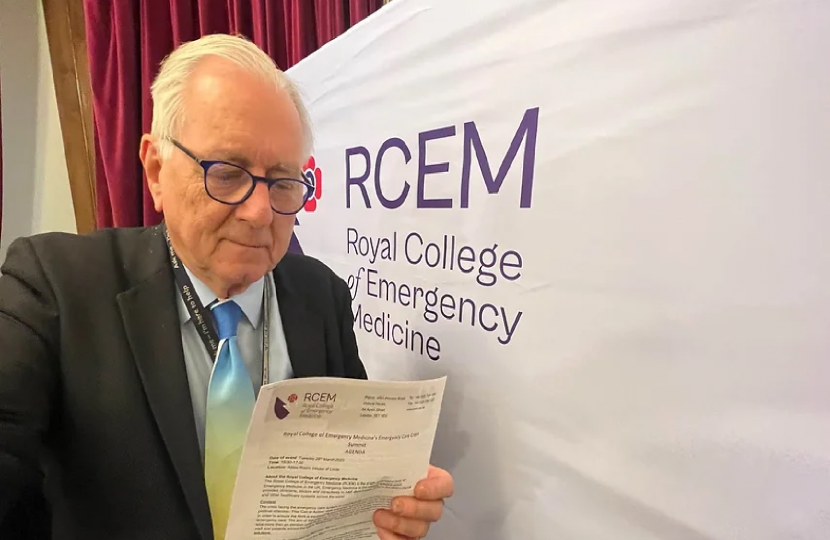
Worthing and neighbouring hospitals have been well served by the well led team of staff, combining the skills and dedication of clinicians, allied professions and everyone working in and around the hospitals. We rely on them and on their colleagues in general practice.
Removing pension penalties and bringing in long-term workforce training and planning should make their lives better over time. Meanwhile, let us thank the paramedics and the hospital intake teams for reducing the longest waits.
During our earlier years as members of parliament, Tim Loughton and I cooperated, campaigned and learnt how best we could help the National Health Services. Each of us had hospital friends who could alert us to difficulties in initiatives from the centre of the NHS. Longer memories are of an unwanted ineffective computer system and a predictable mess made of the arrangements for training specialist doctors.
Better results came when the local leaders were trusted to cooperate. Added benefits came from the varied activities of Leagues of Friends who helped support staff and to develop ease for patients and their families.
The leadership by chairs of the Trust, working first with Dame Marianne Griffiths and now Dr George Findlay, have earned our confidence. When cases go well as they usually do, it is the result of people helping each other to help patients. When there is a problem or a treatment goes wrong, my experience is that the hospital want to know, want to explain in an open way, and then to apply lessons to reduce a repeated failure.
I believe it helps to listen to those who know what the pressures are. With encouragement and an introduction by local expert consultants, this week I had a conversation with one before attending the Summit held at the Lords’ end of the Palace of Westminster by the Royal College of Emergency Medicine. The president Dr Adrian Boyle explained the need for long term action to ensure the NHS is equipped to provide timely care for all patients who need emergency treatment.
Earlier, I met dentists dedicated to overcoming difficulties in obtaining NHS dental provision locally and throughout the country. The British Dental Association, government and the regional Integrated Care leaders are working together to bring results.
Panel discussion highlighted the pressures on staff and patients. There is recognition that more than one election cycle is needed for the potential solutions across the emergency care pathway to have the opportunity to make a difference.
The targeted improvements needed include having enough staffed beds to allow 85 percent occupancy, to expand community and social care provision so patients are discharged home or to a home when their medical care is complete, and evaluation of initiatives with publication of results, all in support of timely and safe care.
It is not enough to explain how much more is being done now compared with 10, 20 or 30 years ago. On Wednesday I attended the parliamentary agm for Motor Neurone Disease. That is one of many conditions, including Huntingdon’s Disease, where research funding should bring results. One of our early lodgers experienced MND bravely.
Changing the mood, I welcomed the Aviva reception at Westminster. The insurance company has a respected office in Worthing’s Little High Street in a building created for the Environment Agency. Aviva included stands for charities and good causes supported by their staffs’ volunteering.
I congratulate our local and regional accountancy firm Carpenter Box for their charity day this week. Their charitable foundation aims to raise £50,000. It is impressive to recognise they bring in 10-15 trainees a year amongst 40 new staff.
When I talk with the Education Secretary and her ministerial colleagues, I can speak with pride of the successful work of our colleges, our DWP professionals and the training contractors for those overcoming employment challenges.
I can nominate heroes for the 2023 NHS Parliamentary Awards: see my website for details. There is not a category for MPs who have completed CPR training.



